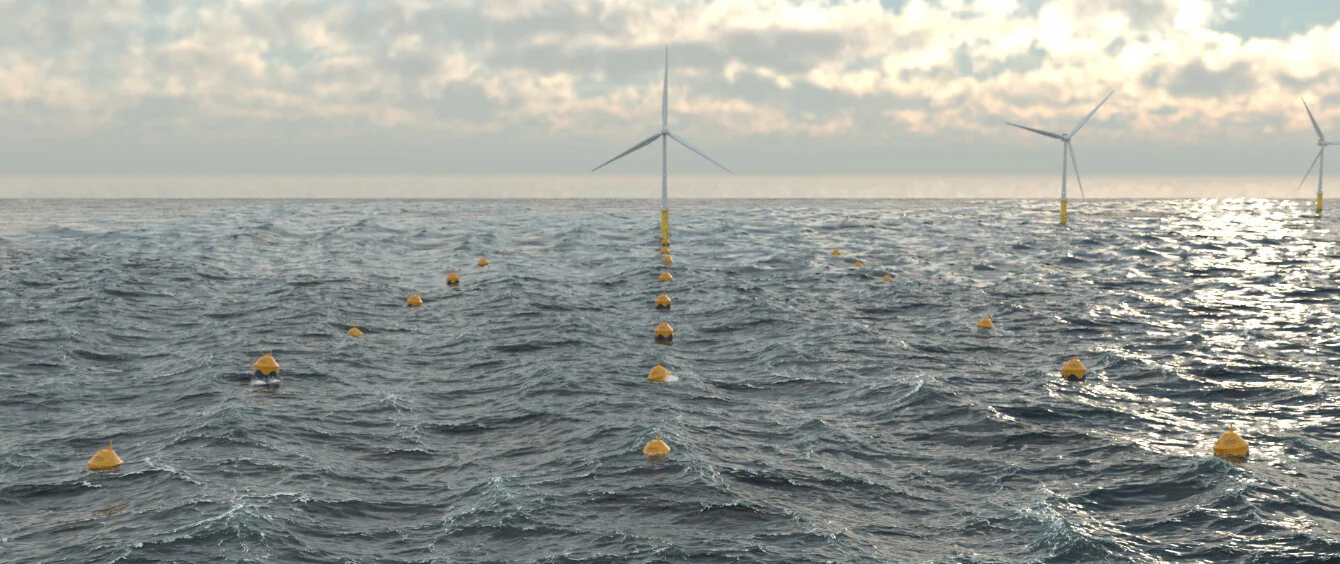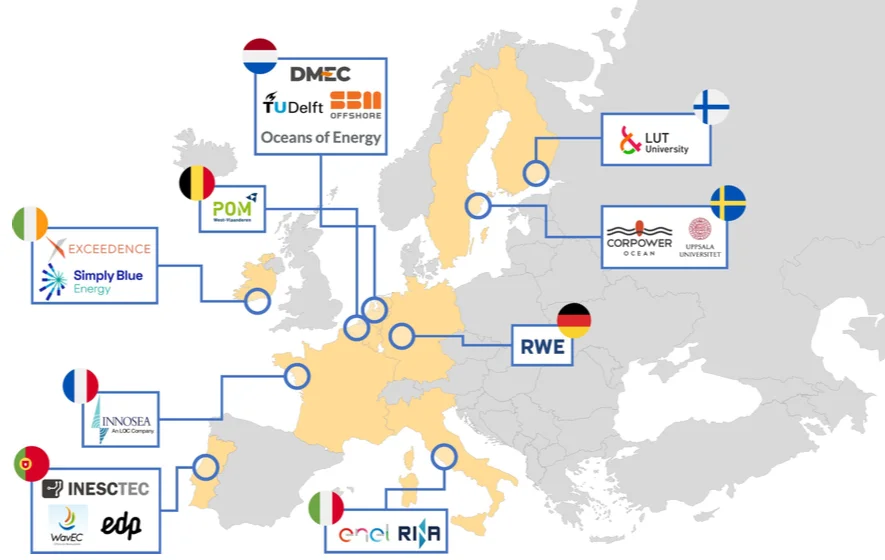The €45 million marine energy project – European SCalable Offshore Renewable Energy Sources (EU-SCORES) – will pave the way for bankable hybrid offshore parks across Europe by 2025. Under the project lead of the Dutch Marine Energy Centre (DMEC), EU-SCORES will unlock the large-scale potential of wind, wave and offshore solar systems.
The current global annual electricity consumption is about 21,000 TWh and is predicted to double by 2050, with a growing population and GDP. Efficient and effective use of offshore renewables is pivotal in the EU’s transition towards an economy with net-zero greenhouse gas emissions by 2050. To accomplish this, the EU set clear targets to reach 230-440GW and 40GW installed capacity of offshore wind and ocean energy by 2050, respectively.
Kicking off in September 2021, the project partners will jointly build on two highly comprehensive and impactful demonstrations: (1) A 3MW offshore solar PV system by Oceans of Energy off the Belgian coast co-located with a bottom fixed windfarm and; (2) A 1.2MW wave energy array by CorPower Ocean in Portugal co-located with a floating wind farm.
The demonstrations in EU-SCORES aim to showcase the benefits of continuous power output by harnessing complimentary power sources including wind, sun and waves. This hybrid approach will create a more resilient and stable power system, higher capacity factors and a lower total cost per MWh. Major project developers and utility companies will further strengthen demonstration efforts, paving the way for future large-scale commercialisation of these innovative parks.
The full-scale demonstrations are intended to prove how the increased power output and capacity installed per km2 will reduce the amount of marine space needed, thereby leaving more space for aquaculture, fisheries, shipping routes and environmentally protected zones. Additional benefits achieved by co-using critical electrical infrastructures and exploring advanced operation and maintenance methodologies supported by innovative autonomous systems should lower the costs per MWh. Moreover, the project demonstrations will support the stability and resilience of the European energy system, while considering sustainability, local stakeholders and existing ecosystems.
Benjamin Lehner, Project Portfolio Manager DMEC: “For a successful energy transition we have to move fast without jeopardizing the reliability of our electricity grid. EU-SCORES can be a game changer doing so. The multi-use of offshore space presents a favorable business case with major potential to accelerate the transition, while the hybrid approach will enable more reliable electricity provision.”
Matthijs Soede, Senior Policy Officer at European Commission DG Research: “We have very high expectations from the EU-SCORES project, which perfectly fits with our aim to realise the Green Deal. They show great ambition by demonstrating different energy sources considering efficient use of the seas and their success will support the clean energy transition.“
EU-SCORES Consortium Partners
The EU-SCORES consortium partners are: Dutch Marine Energy Centre (DMEC), Oceans of Energy, TU Delft, SBM offshore, POM West-Vlaanderen (POM), RWE Renewables (RWE), CorPower Ocean, Uppsala University, Lappeenranta-Lahti University of Technology (LUT), Enel Green Power, RINA offshore consultants, INNOSEA – a AqualisBraemar LOC Group company, EDP Labelec, WavEC Offshore Renewables, INESC TEC, Exceedence, Western Star Wave – a Simply Blue Group company.
Also supported by: IRO (Association of Dutch Suppliers in the Offshore Energy Industry), ENECO Group, Redes Enérgeticas Nacionais, Parkwind, Ocean Winds, Energie Baden-Württemberg

